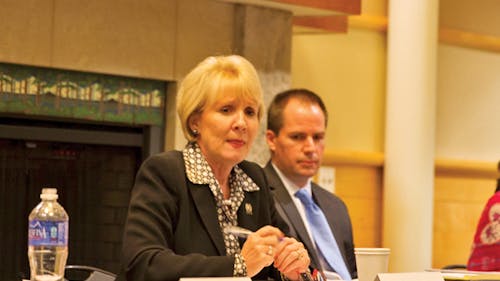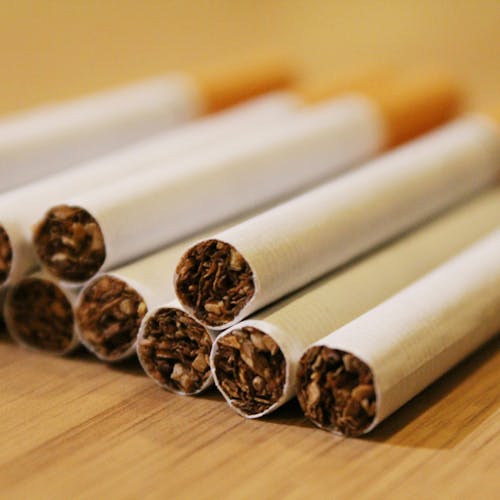NJ Assemblywoman encourages responsible drinking awareness

Mary Pat Angelini did not know what a keg stand was when she was in college.
The New Jersey assemblywoman, along with a group of panelists, spoke yesterday in the Livingston Student Center and brought up the cultural shift in alcohol consumption, which has increased in intensity and frequency since the panelists attended college.
The Good Samaritan Policy, also known as the 911: Lifeline Legislation, was passed in 2009 and offers underage drinkers immunity from prosecution if they call the police on behalf of other underage drinkers in need of medical attention.
The Scarlet Honor Council invited Angelini and a panel of public policy experts to speak yesterday to promote awareness of this law.
Lieutenant Paul Fischer of the Rutgers University Police Department said when students are not thinking clearly, avoiding getting into trouble can outweigh helping a friend who might be dying in front of their eyes.
“Our legislators need to hear about these issues,” Angelini said.
Legislators did not hear about the 1,800 college students who died from alcohol poisoning in the United States over the last year or the more than 97,000 who were sexually assaulted in an alcohol-related context, she said.
For Angelini, it is impossible to talk about alcohol abuse without the other crimes and issues associated with it.
Alcohol shows up in everything, Fischer said.
“I have the misfortune of having a job where I show up when people have lost the battle with alcohol abuse,” he said.
Joe DiMichele, director of Student Conduct, read the official wording of the law, which outlines the requirements for a student receiving immunity.
The immunity applies to any underage person who calls 911 reporting another underage person in need of medical assistance, according to the New Jersey National Council on Alcoholism and Drug Dependence’s website.
The caller needs to be the first to make the report, provide his or her name and remain at the scene until emergency personnel arrive, according to NCADDNJ.org.
The amount of drugs in possession must be consistent with personal use, Fischer said. He emphasized that drinkers have no need to flee the scene, especially because medical personnel need urgent information about the person in trouble.
Elizabeth Amaya-Fernandez, a health education specialist at Rutgers Health Services, said trying to teach students this information is a tough job. She said it is important to be honest about alcohol and drugs.
Health Services attends every student orientation and transfer seminar, trying to reach as many people as possible.
Media coverage has also increased the attention alcohol gets in public debate.
“It’s just gotten out there faster,” DiMichele said.
Since the school year started, about 13 students have made emergency calls or have been stopped by police officers for alcohol-related issues each weekend.
These students are sent to a counseling program run by the Office of Student Conduct, which DiMichele calls “restorative justice.”
“Restorative justice has been known to get people into treatment,” Amaya-Fernandez said. “We are the very first university in the world to offer recovery housing for students.”
She said the majority of students drink responsibly.
While 13 people is absolutely too many, she said, it is a small population considering the size of the University.
Students bear the sole cost of emergency transportation and hospital fees, which can add up to a few thousand dollars, DiMichele said. A significant incentive for students to drink responsibly is the consequence of their parents receiving the bill.
Angelini opposes a blanket legalization of drugs, an issue that has recently made headlines after several states approved the legalization of marijuana.
“The brain is not formed completely until you’re about 25 years old, so [these drugs] affect your brain,” she said.
Fischer, who has personally witnessed many tragic and premature deaths from drug abuse, feels that the 911: Lifeline Legislation deserves particular attention.
“This is a great law,” Fischer said. “This law is going to save lives [and] we just need to get the word out there.”



